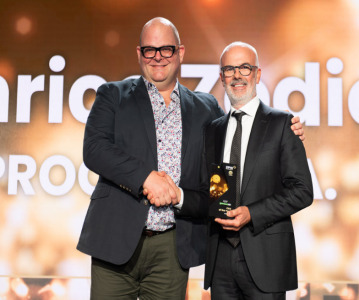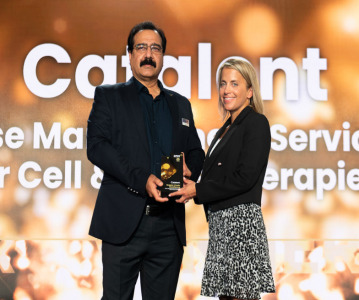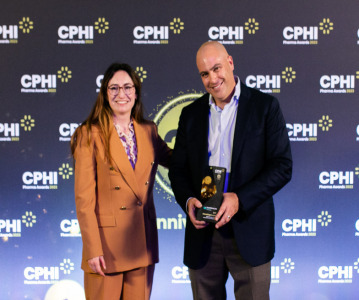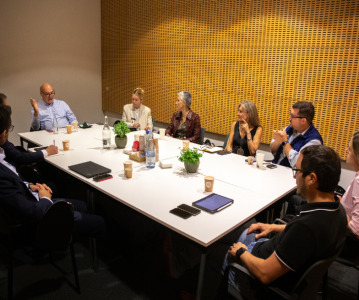CPHI Barcelona 2023: Loading Potential – Artificial Intelligence for Pharma Manufacturing
.png)
During CPHI Barcelona 2023, insightful content sessions offered attendees the chance to explore trending topics with expert speakers and panellists. Here, we summarise what the pharma industry and supply chain are talking about the most.
The Panel Discussion ‘Loading Potential: Artificial Intelligence for Pharma Manufacturing’ gathered experts from across the industry to discuss tangible opportunities within the pharma supply chain to implement AI technologies. Moderated by Willem van Asperen, Chief Data Officer at PA Consulting, topics included AI in batch manufacturing, quality assurance, and the role of chatbots in patient adherence and compliance standards in manufacturing.
AI in a regulated environment
van Asperen began by opening the discussion to the audience, asking whether there were any current usage of AI in a regulated manufacturing environment. One audience member discussed their company’s usage of laser scans to check tablet damage such as chipping or cracks. In response to the identification of certain types of damage, the laser learns and adapts to identify emerging types of damage to tablets, automatically separating these out from the batch.
The importance of considering work in a regulated environment is especially critical for pharmaceutical companies looking to employ AI technologies in their processes. van Asperen commented that "regulations are behind and, truth be told, they are not equipped to make those decisions yet.” Joe Villa, R&D Manager at Procaps, stated “This technology and other emerging techologies have a big potential for the pharmaceutical industry. We need to continuously improve, and even though we have a highly regulated industry, I think there will be an increasing number of applications for this technology. Right now, I think R&D has the biggest potential to use AI for validation and method development.” However, Villa recognised the importance of developing the regulations for AI applications in GMP environments.
Guglielmo Iozzia, Associate Director – Data Science, ML/AI, Computer Vision at MSD, also noted the importance of language concerning regulation of AI technologies in manufacturing and production. “First of all, we have to be clear about the definition of generative AI – typically people just think about Chat GPT or language models so the conversation for us will different. We have cases about generative models for images to solve different cases. Typically, there are two different streams in manufacturing when using these models. Some tasks are over-regulated that must be complied with, so this has slowed down progress a bit here. But there is also a dark area that people don’t typically look at... Think about knowledge management. People in manufacturing sometimes don’t know where to get the right material from. Generative models can be used to improve the search engine. In that area, you don’t need to comply with as many regulations.”
Predictive abilities of generative AI is also under regulatory scrutiny. As van Asperen questioned, “Why would regulators trust a black box to tell them about the quality of a product? But what you can do is use that model to look back whenever there is an issue to see what...triggered the model to predict it will be of bad quality.”
Current AI models in pharma manufacturing
With so many types of AI models, it is a big question for manufacturers as to the types of generative AI models that will serve the industry best. Sean Daughtry, Director of Technical Operations at Vertex Pharmaceuticals, cited chemo-metric models in quantitative and categorical capacities in his line of work. “We’ve looked at machine-learning models such as support vector machines. We’ve looked at artificial neural networks, logistic regression – all of these show potential... the thing is, even if your models are not filed, they do help in terms of investigation. We have seen behaviour that may not, say, affect product quality, but it affects the diagnostics... having those eyes on the process... with some type of machine-learning gives you greater insight.”
Real-time data output also requires the real-time storage and crunching of said information. Director of IQVIA Aurelio Arias stated that “one of the areas making the biggest strides is in NLP (natural language processing)… You can take feedback from customers and start aggregating them, clustering them, ranking things that would normally take someone ages to sift through. Regulatory documents can benefit as well, trying to find answers rapidly, especially when it comes to files stored as PDFs. I think from a support service as well from manufacturing, we caneither implement something from sensor data or we can also take a look at what are the tasks that can reduce burdens on the people.”
Cross-collaboration and AI talent pollination
As with all new technologies, there will come a need for those with the required expertise and skills in working with these technologies. For Daughtry, expertise in AI machine-learning will “come from collaboration of in-house expertise and outside consultants who have specialised in [these technologies]. The full potential has not been captured yet so there will be an exploratory phase... I think in addition to the consultant you will also want to have conversations early on with regulatory agencies, whether it’s with the emergency technologies committee or others in order to see where they stand in terms of what is required.”
“I think it depends, whether to buy or not buy” Villa stated. “Each case will be evaluated individually. First, we need to know what you need the applications for and then evaluate the options available on the market. In my experience, we need to avoid any surprises – if they don’t meet the requirements from regulatory authorities or they don’t meet options for different profiles we need to meet – then it is necessary to accrue all the different activities you need in the process.”
“At the upper level, when deciding to buy or not buy, we start involving tech people, business people etc.” Iozzia added. “In terms of general collaboration, what the company understands now is that you cannot have a team of just external consultants because they will not have a full picture of the organisation. So fostering a collaboration between expertise in-house with external consultants to drive the conversation.”
Arias prodded at the idea of AI replacing talent with some optimism. “With all the discussion around collaboration, I think you’re not going to be out of a job soon,” he made light. “That’s the question on everyone’s mind – will AI work for my organisation now, or do I wait? When we speak to our customers, it’s of course an individual company choice. It depends on where you want to implement AI and what the final business measure is going to be. For those trying to be ahead of the innovation curve, then you must be sure it will impact a large part of your business operations that adds value. It’s a lot of investment of money and it is experimental. You’ll also be able to differentiate your company through it. If it’s not going to impact a large portion of your operations, it might be worth waiting a bit to make sure that there are proven examples – standardisation, regulators on board – then maybe you can purchase something that is more enterprised.”
Final thoughts
The session ended with opportunities for the audience to field questions to the panel. Regarding the pharmaceutical industry’s aversion to risk, one audience member questioned whether such concerns over regulatory requirements were hindering progress more than they were protecting industry integrity.
Villa responded that “The agencies have strict controls in all regulations, and any change in those regulations will be evaluated with the agency before it is implemented. The technology is increasing so quickly but the regulation is not changing in proportion to this... the audits evaluate the regulation in your company. If you implement a technology that is not evaluated with the agency, it is not approved during the audit and that’s a big problem there.”
“It’s not just one regulatory agency you’re dealing with,” Daughtry added. “If they’re not harmonised when you’re entering into one phase, you might have approval in one region but not another. So you can’t sell globally because you have different processes for different regions... agencies are being more collaborative but as we enter into a new era, they have to catch up in terms of their collaboration. If you have something that’s making money now, do you invest in the change and go through the regulatory hurdles again? That’s a business decision.”
To watch the full panel discussion from CPHI Barcelona, click here.
Related News
-
News CPHI Pharma Awards 2023 – Sustainability winners: Schneider Electric
After another year of impressive nominations for the CPHI Pharma Awards our winners were announced at CPHI Barcelona in October 2023. In this series of interviews, we speak to the people and teams behind the award-winning projects, concepts, and techno... -
News CPHI Pharma Awards 2023 – At the Heart of Pharma winners: Merck KGaA
After another year of impressive nominations for the CPHI Pharma Awards our winners were announced at CPHI Barcelona in October 2023. In this series of interviews, we speak to the people and teams behind the award-winning projects, concepts, and techno... -
News CPHI Pharma Awards 2023 – Packaging & Machinery Winner: Gasporox
After another year of impressive nominations for the CPHI Pharma Awards our winners were announced at CPHI Barcelona in October 2023. In this series of interviews, we speak to the people and teams behind the award-winning projects, concepts, and techno... -
News CPHI Pharma Awards 2023 – CEO of the Year Winner: Enrico Zodio, PROCOS S.P.A.
After another year of impressive nominations for the CPHI Pharma Awards our winners were announced at CPHI Barcelona in October 2023. In this series of interviews, we speak to the people and teams behind the award-winning projects, concepts, technologi... -
News CPHI Pharma Awards 2023 – Supply Chain Excellence Winners: Catalent Case Management Services
After another year of impressive nominations for the CPHI Pharma Awards our winners were announced at CPHI Barcelona in October. In this series of interviews, we speak to the people and teams behind the award-winning projects, concepts, and technologie... -
News CPHI Pharma Awards 2023 – API Development and Innovation Winners: Snapdragon Chemistry, a Cambrex Company
After another year of impressive nominations for the CPHI Pharma Awards our winners were announced at CPHI Barcelona in October. In this series of interviews, we speak to the teams behind the award-winning projects, concepts, and technologies. -
News Navigating the Future: Challenges and Opportunities in Pharma Innovation and Investment – CPHI Barcelona 2023 Roundtable Report
In this comprehensive downloadable report, hear from a range of experts in finance and investment in the pharma industry on what investment trends will be shaping the future of the industry, in Catalonia, and the wider world. -
News CPHI Barcelona: Outsourcing in Manufacturing Operations
During CPHI Barcelona 2023, insightful content sessions offered attendees the chance to explore trending topics with expert speakers and panellists. Here, we summarise what the pharma industry and supply chain are talking about the most.
Position your company at the heart of the global Pharma industry with a CPHI Online membership
-
Your products and solutions visible to thousands of visitors within the largest Pharma marketplace
-
Generate high-quality, engaged leads for your business, all year round
-
Promote your business as the industry’s thought-leader by hosting your reports, brochures and videos within your profile
-
Your company’s profile boosted at all participating CPHI events
-
An easy-to-use platform with a detailed dashboard showing your leads and performance
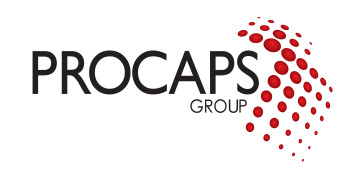
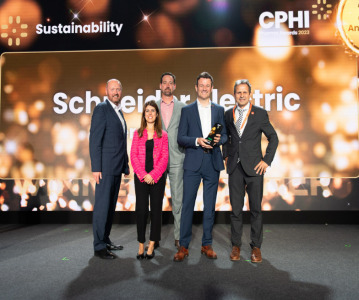
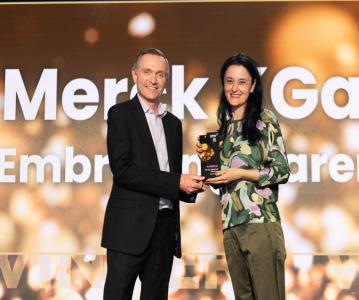
.png)
